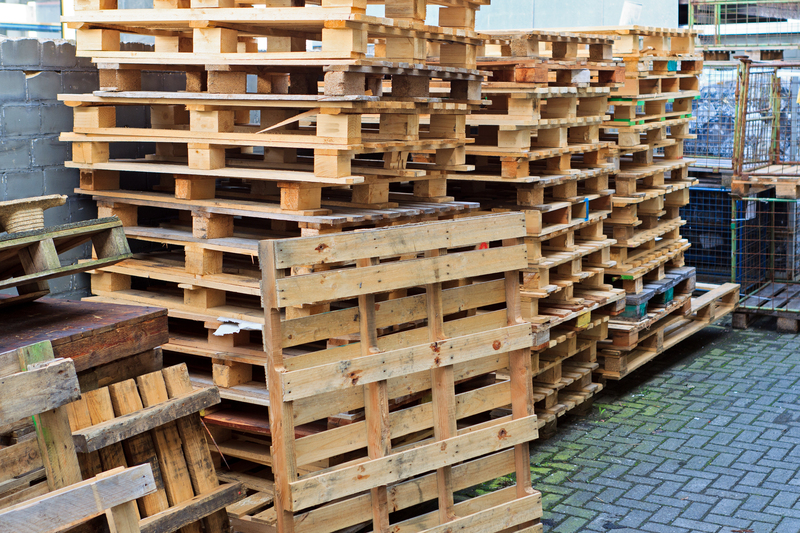Innovative Ideas for Tackling PPE Waste Responsibly
The widespread use of personal protective equipment (PPE) during global health crises, such as the COVID-19 pandemic, has saved countless lives. However, the surge in disposable masks, gloves, gowns, and face shields has inadvertently led to an environmental dilemma. Landfills brim with PPE, and oceans are polluted by discarded masks, threatening animal and human health. Addressing this growing challenge requires innovative strategies for responsibly handling PPE waste. In this article, we delve deep into sustainable, practical, and scalable solutions for managing and reducing PPE waste.
Understanding the Impact of PPE Waste
The use of single-use PPE skyrocketed during the pandemic, with millions of tons of waste generated worldwide. According to estimates, nearly 129 billion face masks and 65 billion gloves are disposed of each month globally. The consequences are dire:
- Environmental pollution: Disposable PPE is chiefly made from non-biodegradable plastics such as polypropylene, which take hundreds of years to decompose.
- Danger to wildlife: Animals may ingest, become entangled in, or suffocate from discarded PPE.
- Public health hazards: Improper disposal can spread pathogens, putting waste workers and communities at risk.
To address these issues, it's vital to consider new directions for responsible PPE disposal, focusing on the reduction, reuse, and recycling of PPE materials whenever possible.

Current Methods and Their Limitations
The primary disposal methods for PPE waste currently are:
- Landfilling: Easiest and most common, but unsustainable for the environment.
- Incineration: Reduces volume but releases toxic emissions if not performed with the latest filtration technologies.
- Basic recycling: Limited by contamination risks and complex material composition.
These methods are not enough in the face of overwhelming volumes and increased environmental awareness. Consequently, there is a pressing need for innovative ideas to tackle PPE waste responsibly.
Innovative Approaches to PPE Waste Management
1. Encouraging the Use of Reusable PPE
One of the most effective ways to reduce PPE waste is to minimize the use of single-use equipment where possible. Reusable PPE, such as washable masks and gowns made from durable fabrics, can dramatically cut down the amount of waste produced.
- Hospitals and workplaces can invest in high-quality, washable PPE that meets safety standards.
- Public education campaigns can encourage individuals to switch to reusable options where safe and practical.
While not all PPE can be replaced with reusable alternatives, especially in high-risk healthcare environments, every bit of reduction helps in decreasing the overall environmental burden.
2. PPE Recycling Programs and Advanced Recycling Technologies
Traditional recycling methods struggle with PPE due to contamination and material complexity, but new recycling technologies are showing promise. Examples include:
- Specialized recycling plants: Companies like TerraCycle collaborate with organizations to collect and process PPE waste into materials for park benches, construction boards, or even new PPE.
- Pyrolysis: This advanced technique converts plastics from used PPE into usable fuels and raw materials through high-temperature processing in the absence of oxygen.
- Chemical recycling methods: Innovations in chemical recycling allow breakdown of plastic polymers into reusable monomers, enabling the creation of new high-grade products.
Developing sustainable PPE recycling programs at both community and industrial levels can make a major impact.
3. Biodegradable and Compostable PPE Alternatives
Another innovative solution to manage PPE waste sustainably is the development of biodegradable PPE made from natural fibers and materials.
- Biopolymer masks and gloves: Startups and research institutes are working on PPE made from materials like polylactic acid (PLA), agar, and other plant-based plastics, which degrade in composting facilities.
- Starch-based PPE: Products derived from cornstarch and other renewable sources offer promise for both performance and environmental safety.
While these alternatives are still being perfected to meet all safety and usability requirements, their adoption could transform how we view responsible PPE disposal.
4. Take-Back and Collection Initiatives
Setting up PPE take-back programs is an effective way to ensure waste is properly managed:
- Retail and pharmacy drop-off points: Consumers can return used masks and gloves to designated bins for safe disposal or recycling.
- Hospital and clinic collection: Healthcare facilities can streamline PPE waste into dedicated recyclable or safely disposable streams.
These initiatives demonstrate shared responsibility, making it easier for both individuals and organizations to participate in sustainable PPE waste management.
5. Upcycling and Creative Reuse
A growing movement is exploring ways to upcycle PPE waste into valuable products:
- Construction materials: Researchers are incorporating shredded masks into road surfacing and bricks, improving durability and diverting waste from landfills.
- Art and educational projects: Artists and schools turn sanitized PPE into murals, sculptures, or teaching materials, raising awareness about environmental issues.
Such approaches underscore the potential for innovative PPE waste solutions that blend utility, education, and sustainability.
Best Practices for PPE Waste Treatment and Handling
Safe Segregation and Storage
Proper sorting of used PPE is paramount to limiting contamination. Facilities should:
- Use color-coded bins for PPE waste.
- Regularly disinfect containers and collection points.
- Train staff on correct segregation protocols.
Decontamination Technologies
New sterilization techniques allow for the decontamination and repurposing of certain PPE items. Examples include:
- UV-C irradiation systems that kill pathogens without damaging the material.
- Vaporized hydrogen peroxide chambers that can sterilize masks for limited reuse in healthcare.
Although these methods cannot be applied to all PPE types, they offer significant reduction of waste in appropriate contexts.
Education and Community Engagement
Raising awareness about the environmental risks associated with improper PPE disposal and the benefits of responsible alternatives is essential. Institutions can:
- Develop educational materials for all age groups.
- Collaborate with local governments on outreach and collection events.
- Encourage innovation challenges to invent new PPE waste solutions.
Case Studies: Success Stories in PPE Waste Reduction
TerraCycle's Zero Waste Box Initiative
TerraCycle partners with organizations globally to collect PPE waste through its specialized Zero Waste Boxes. Participants mail boxes filled with used PPE back to TerraCycle, where materials are safely recycled into products like garden beds and park benches. This closed-loop system is an inspirational example of commercial PPE waste recycling.
Sustainable PPE in the United Kingdom's NHS
The UK's National Health Service has piloted the use of reusable gowns and masks in select hospitals. Through rigorous safety testing and laundering protocols, they have significantly reduced single-use PPE waste without compromising safety--a model for other large healthcare systems.
Mask2Road Project in Australia
Researchers at RMIT University developed a technique to integrate shredded face masks into road construction. The result is stronger, longer-lasting roads--as well as an innovative solution to PPE landfill waste.
Innovative Policy Solutions and Regulations
To scale up these approaches, government intervention and supportive policies are necessary. Effective policies may include:
- Incentives for manufacturers to develop and produce biodegradable PPE.
- Regulations requiring hospitals and large facilities to implement certified recycling programs.
- Grants for research into decontamination and recycling innovations.
- Public procurement policies that favor eco-friendly PPE supplies.
Moreover, international collaboration can standardize best practices and ensure that innovative solutions to dispose of PPE responsibly can be shared across borders.

The Road Ahead: A Sustainable Future for PPE Waste
While the challenge is significant, the ingenuity demonstrated by researchers, businesses, governments, and communities offers hope. Moving forward, a multifaceted approach focusing on:
- Reduction of single-use PPE through smarter design and procurement.
- Investment in next-generation recycling and biodegradable materials technology.
- Collaboration across sectors to create scalable, circular waste solutions.
By embracing innovative ideas for tackling PPE waste responsibly, we can protect both public health and our planet's future. Responsible management of PPE waste isn't just an environmental obligation--it's a testament to human resilience and creativity in the face of global challenges.
Conclusion
Addressing the worldwide issue of PPE waste requires a holistic, innovative, and coordinated response. By combining technological advancements, community engagement, policy reform, and sustainable product design, we can minimize the environmental footprint of essential protective gear. The journey toward a cleaner, more sustainable world starts with responsible PPE waste management--and every action counts.
Let's commit to transforming the way we produce, use, and dispose of PPE. Through innovative approaches and collective responsibility, we can turn the tide on PPE waste and safeguard the planet for generations to come.